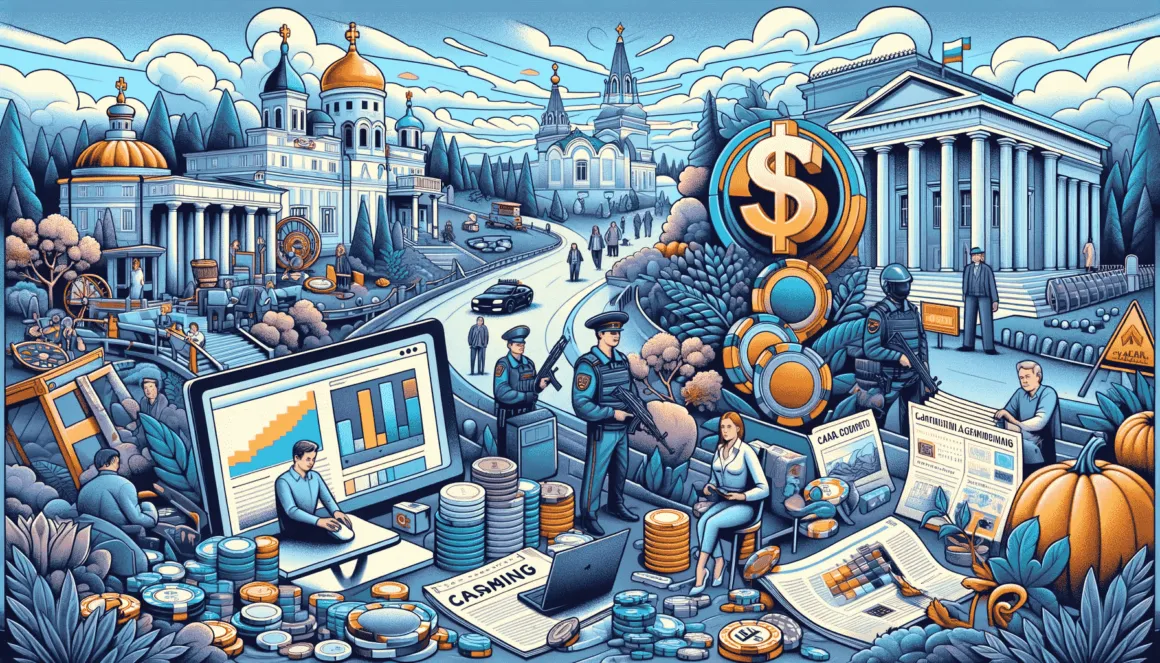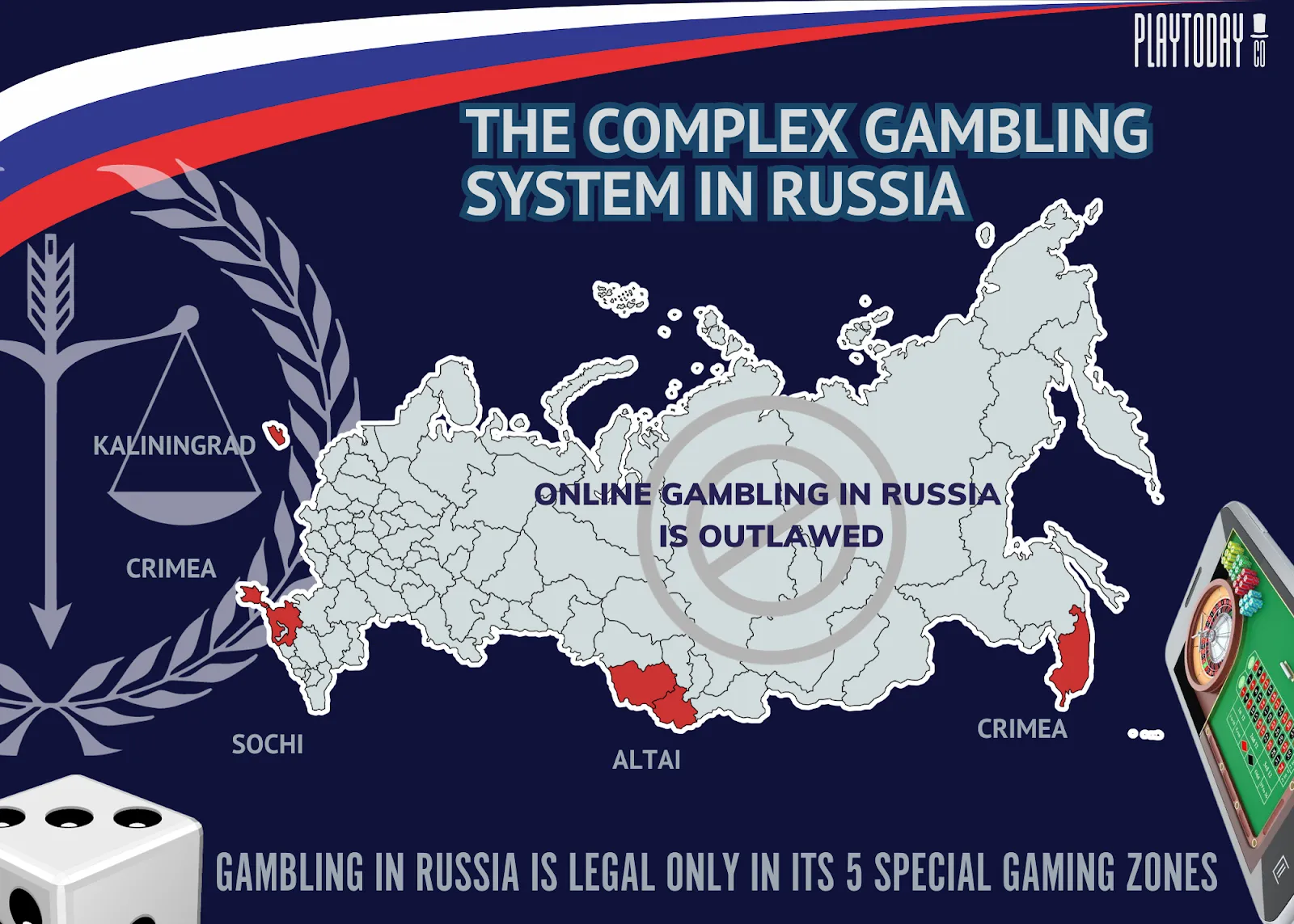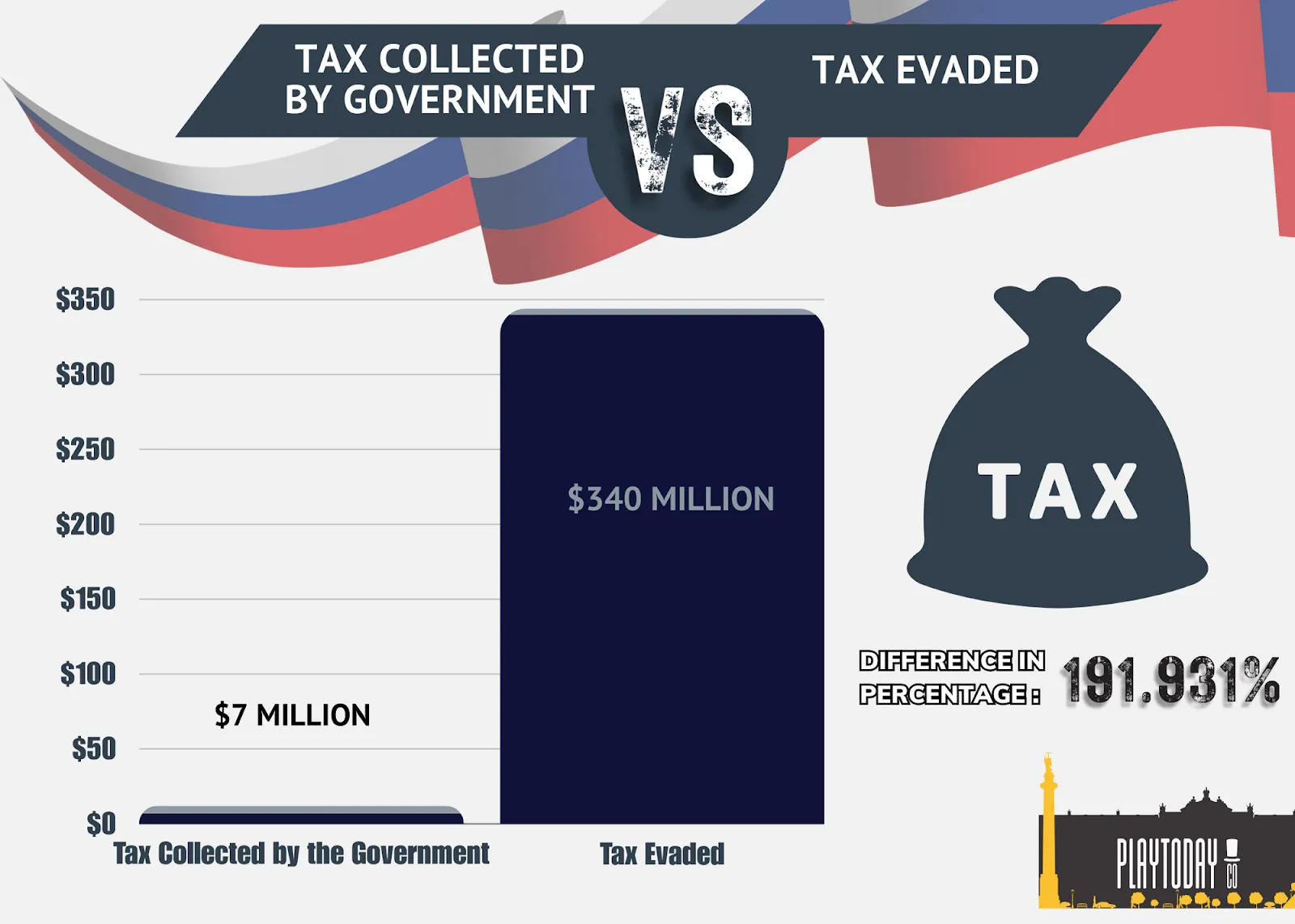Gambling Laws in Russia An In-Depth Guide to Navigating the Complex Legal Landscape
Gambling has been a controversial topic in many countries, with strong opinions and regulations surrounding it. One such country is Russia, where the gambling industry has seen many changes over the years. From complete prohibition to strict regulations, the Russian gambling laws have evolved significantly.
In this comprehensive guide, we will delve into the intricacies of gambling laws in Russia. We will explore the historical background, current regulations, and future outlook for the industry. So buckle up and get ready to dive deep into the world of gambling laws in Russia.

Historical Background of Gambling Laws in Russia
The history of gambling laws in Russia can be traced back to the late 19th century when the Russian Empire was ruled by Tsar Nicholas II. Up until then, gambling had been a widespread activity in Russia, with many casinos operating in major cities like Moscow and St. Petersburg.
However, in 1917, the Bolshevik Revolution brought about significant changes in the country, including the complete prohibition of gambling. The Soviet Union banned all forms of gambling, considering it to be a vice that goes against the principles of communism.
The ban remained in place until the early 1980s when the government started to loosen its grip on the industry. In 1988, the first legal gambling establishment, the Cosmos Hotel Casino, opened its doors in Moscow. This marked the beginning of a new era for the gambling industry in Russia.
However, the respite for the gambling industry was short-lived, as the Soviet Union collapsed in 1991, giving way to the formation of the Russian Federation. With the new government came new laws and regulations, and the gambling industry found itself at the center of attention once again.
Current Regulations on Gambling in Russia

Currently, the gambling industry in Russia is heavily regulated, with strict laws governing every aspect of it. The primary legislation that governs gambling in the country is the Federal Law on Gambling, which was enacted in 2006.
Under this law, all forms of gambling are prohibited, except for four designated zones – two in the European part of Russia and two in the Far East. These zones are called “gambling zones” and are subject to specific regulations and restrictions.
Designated Gambling Zones
- Krasnaya Polyana: Located in the Krasnodar region in Southern Russia, this zone opened its doors in 2017 and has since become a popular destination for tourists looking to gamble.
- Siberian Coin: Located near the border with China and Mongolia, this zone offers a wide range of casinos and hotels for visitors.
- Primorye: Located in the Far East near Vladivostok, this zone boasts of some of the most luxurious casino resorts in Russia.
- Azov-City: Located near the Black Sea, this zone has been closed down since 2019 due to new legislation that prohibits gambling establishments from operating within 500 kilometers of major cities.
Restrictions and Regulations
Apart from the designated gambling zones, there are several other restrictions and regulations in place that impact the industry as a whole. One of the most significant restrictions is the ban on online gambling, which was introduced in 2009. This law prohibits all forms of online gambling, including sports betting and poker.
Additionally, there are strict rules on advertising and promotion of gambling activities. All forms of advertising must be approved by the government, and any violation can result in severe penalties.
Furthermore, only licensed operators are allowed to offer gambling services in the country. This means that all casinos, bookmakers, and other gambling establishments must have a valid license from the Federal Tax Service and comply with all regulations set forth by the government.
Challenges Faced by the Gambling Industry in Russia
The strict regulations and restrictions imposed on the gambling industry in Russia have led to a host of challenges for operators, players, and the government itself. Let’s take a deeper look at some of these challenges.
Black Market Activities
Due to the prohibition of online gambling, many unlicensed operators have turned to the black market to offer their services. This has resulted in a thriving underground gambling scene, with no regulations or protections for players. The Russian government estimates that the black market for online gambling is worth billions of dollars, making it difficult to regulate and control.
Decline in Tourism
The designated gambling zones were intended to attract tourists and boost the local economy. However, due to the strict regulations and limited options for gambling, these zones have not been able to achieve their goals. This has led to a decline in tourism and revenue for these regions, ultimately impacting the overall economy of the country.
Rise in Problem Gambling
Another significant challenge faced by the gambling industry in Russia is the rise in problem gambling. With limited options for legal gambling, many players turn to the black market or travel abroad to satisfy their urge to gamble. This has led to an increase in addiction and other problems associated with gambling.
Future Outlook for the Gambling Industry in Russia

Despite the challenges, there are signs that the Russian government may be looking to ease its grip on the gambling industry. In 2019, a bill was introduced in the State Duma (the lower house of the Federal Assembly) that would legalize online sports betting and poker. While the bill is still under review, it has given hope to many operators and players in the country.
Additionally, the closure of Azov-City has sparked discussions about the possibility of opening new gambling zones closer to major cities. This could potentially boost tourism and revenue for the country while also providing more options for players.
However, any changes to the current laws and regulations will likely be slow and gradual, as the Russian government is known for its conservative approach to gambling. For now, operators and players will have to navigate through the complexities of the current legal landscape.
Conclusion
The gambling laws in Russia are complex and constantly evolving, making it a challenging environment for operators and players alike. The strict regulations and prohibitions have resulted in a thriving black market, declining tourism, and an increase in problem gambling.
While there are signs of potential changes in the future, the industry must continue to adhere to the current laws and regulations. As the Russian government continues to monitor and regulate the industry, it is essential for all stakeholders to stay informed and follow the rules to ensure a safe and responsible gambling environment.